
CoachAI-Projects
Official research projects of badminton CoachAI
Stars: 70
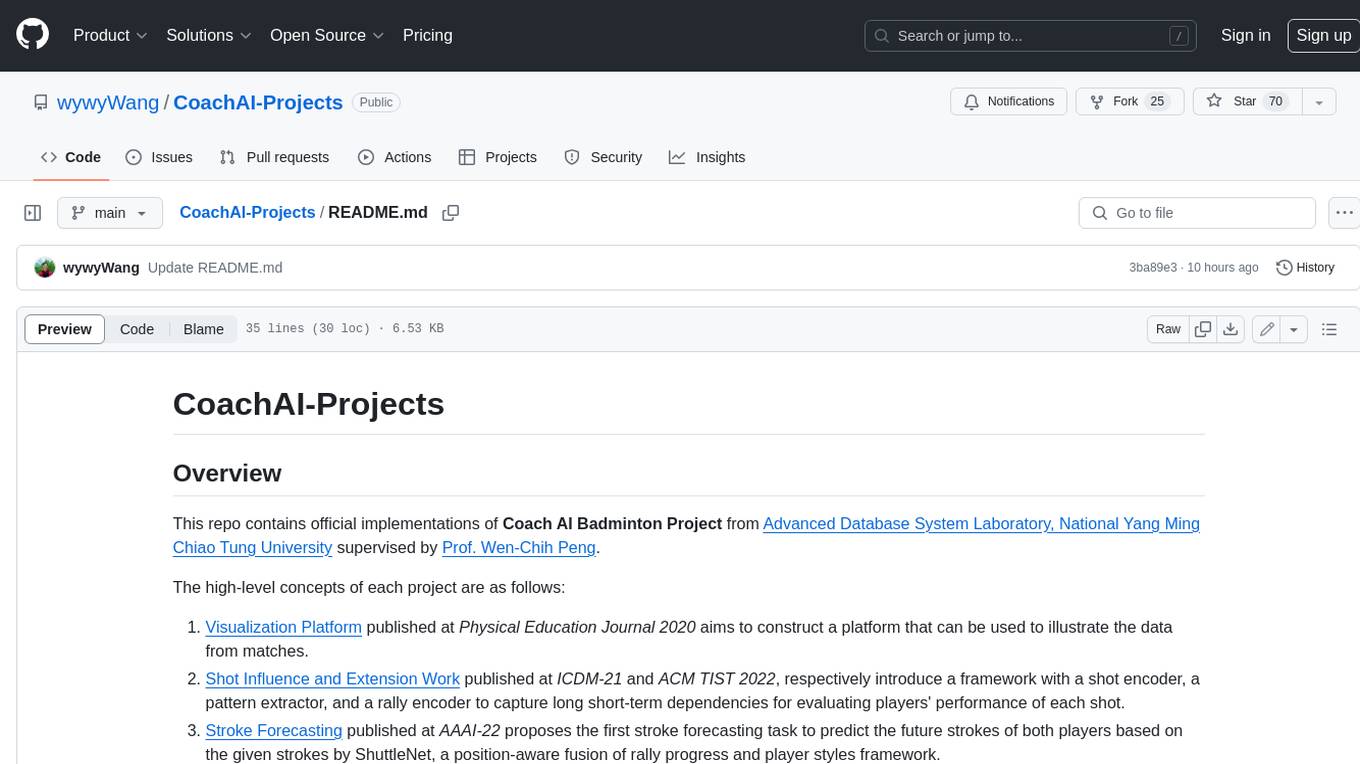
This repo contains official implementations of **Coach AI Badminton Project** from Advanced Database System Laboratory, National Yang Ming Chiao Tung University supervised by Prof. Wen-Chih Peng. The high-level concepts of each project are as follows: 1. Visualization Platform published at _Physical Education Journal 2020_ aims to construct a platform that can be used to illustrate the data from matches. 2. Shot Influence and Extension Work published at _ICDM-21_ and _ACM TIST 2022_ , respectively introduce a framework with a shot encoder, a pattern extractor, and a rally encoder to capture long short-term dependencies for evaluating players' performance of each shot. 3. Stroke Forecasting published at _AAAI-22_ proposes the first stroke forecasting task to predict the future strokes of both players based on the given strokes by ShuttleNet, a position-aware fusion of rally progress and player styles framework. 4. Strategic Environment published at _AAAI-23 Student Abstract_ designs a safe and reproducible badminton environment for turn-based sports, which simulates rallies with different angles of view and designs the states, actions, and training procedures. 5. Movement Forecasting published at _AAAI-23_ proposes the first movement forecasting task, which contains not only the goal of stroke forecasting but also the movement of players, by DyMF, a novel dynamic graphs and hierarchical fusion model based on the proposed player movements (PM) graphs. 6. CoachAI-Challenge-IJCAI2023 is a badminton challenge (CC4) hosted at _IJCAI-23_. Please find the website for more details. 7. ShuttleSet published at _KDD-23_ is the largest badminton singles dataset with stroke-level records. - An extension dataset ShuttleSet22 published at _IJCAI-24 Demo & IJCAI-23 IT4PSS Workshop_ is also released. 8. CoachAI Badminton Environment published at _AAAI-24 Student Abstract and Demo, DSAI4Sports @ KDD 2023_ is a reinforcement learning (RL) environment tailored for AI-driven sports analytics, offering: i) Realistic opponent simulation for RL training; ii) Visualizations for evaluation; and iii) Performance benchmarks for assessing agent capabilities.
README:
This repo contains official implementations of Coach AI Badminton Project from Advanced Database System Laboratory, National Yang Ming Chiao Tung University supervised by Prof. Wen-Chih Peng.
The high-level concepts of each project are as follows:
- Visualization Platform published at Physical Education Journal 2020 aims to construct a platform that can be used to illustrate the data from matches.
- Shot Influence and Extension Work published at ICDM-21 and ACM TIST 2022, respectively introduce a framework with a shot encoder, a pattern extractor, and a rally encoder to capture long short-term dependencies for evaluating players' performance of each shot.
- Stroke Forecasting published at AAAI-22 proposes the first stroke forecasting task to predict the future strokes of both players based on the given strokes by ShuttleNet, a position-aware fusion of rally progress and player styles framework.
- Strategic Environment published at AAAI-23 Student Abstract designs a safe and reproducible badminton environment for turn-based sports, which simulates rallies with different angles of view and designs the states, actions, and training procedures.
- Movement Forecasting published at AAAI-23 proposes the first movement forecasting task, which contains not only the goal of stroke forecasting but also the movement of players, by DyMF, a novel dynamic graphs and hierarchical fusion model based on the proposed player movements (PM) graphs.
- CoachAI-Challenge-IJCAI2023 is a badminton challenge (CC4) hosted at IJCAI-23. Please find the website for more details.
-
ShuttleSet published at KDD-23 is the largest badminton singles dataset with stroke-level records.
- An extension dataset ShuttleSet22 published at IJCAI-24 Demo & IJCAI-23 IT4PSS Workshop is also released.
- CoachAI Badminton Environment published at AAAI-24 Student Abstract and Demo, DSAI4Sports @ KDD 2023 is a reinforcement learning (RL) environment tailored for AI-driven sports analytics, offering: i) Realistic opponent simulation for RL training; ii) Visualizations for evaluation; and iii) Performance benchmarks for assessing agent capabilities.
- Wei-Yao Wang, Wen-Chih Peng, Wei Wang, Philip Yu, "ShuttleSHAP: A Turn-Based Feature Attribution Approach for Analyzing Forecasting Models in Badminton", paper
- Wei-Yao Wang, Wei-Wei Du, Wen-Chih Peng, "Benchmarking Stroke Forecasting with Stroke-Level Badminton Dataset", IJCAI 2024 Demo & IT4PSS @ IJCAI 2023, paper
- Kuang-Da Wang, Yu-Tse Chen, Yu-Heng Lin, Wei-Yao Wang, Wen-Chih Peng, "The CoachAI Badminton Environment: Bridging the Gap Between a Reinforcement Learning Environment and Real-World Badminton Games", AAAI 2024 Demo, paper
- Kuang-Da Wang, Wei-Yao Wang, Yu-Tse Chen, Yu-Heng Lin, Wen-Chih Peng, "The CoachAI Badminton Environment: A Novel Reinforcement Learning Environment with Realistic Opponents (Student Abstract)", AAAI 2024, paper
- Kuang-Da Wang, Wei-Yao Wang, Ping-Chun Hsieh, Wen-Chih Peng, "Generating Turn-Based Player Behavior via Experience from Demonstrations", SPIGM @ ICML 2023, paper
- Kuang-Da Wang, Yu-Tse Chen, Yu-Heng Lin, Wei-Yao Wang, Wen-Chih Peng, "The CoachAI Badminton Environment: Improving Badminton Player Tactics with A Novel Reinforcement Learning Environment", DSAI4Sports @ KDD 2023
- Wei-Yao Wang, Yung-Chang Huang, Tsi-Ui Ik, Wen-Chih Peng, "ShuttleSet: A Human-Annotated Stroke-Level Singles Dataset for Badminton Tactical Analysis", KDD 2023, paper
- Kai-Shiang Chang, Wei-Yao Wang, Wen-Chih Peng, "Where Will Players Move Next? Dynamic Graphs and Hierarchical Fusion for Movement Forecasting in Badminton", AAAI 2023, paper
- Li-Chun Huang, Nai-Zen Hseuh, Yen-Che Chien, Wei-Yao Wang, Kuang-Da Wang, Wen-Chih Peng, "A Reinforcement Learning Badminton Environment for Simulating Player Tactics (Student Abstract), AAAI 2023, paper
- Wei-Yao Wang, "Modeling Turn-Based Sequences for Player Tactic Applications in Badminton Matches", CIKM 2022, paper
- Wei-Yao Wang, Teng-Fong Chan, Wen-Chih Peng, Hui-Kuo Yang, Chih-Chuan Wang, Yao-Chung Fan, "How Is the Stroke? Inferring Shot Influence in Badminton Matches via Long Short-term Dependencies", ACM TIST 2022, paper
- Wei-Yao Wang, Hong-Han Shuai, Kai-Shiang Chang, Wen-Chih Peng, "ShuttleNet: Position-aware Fusion of Rally Progress and Player Styles for Stroke Forecasting in Badminton", AAAI 2022, paper
- Wei-Yao Wang, Teng-Fong Chan, Wen-Chih Peng, Hui-Kuo Yang, Chih-Chuan Wang, Yao-Chung Fan, "Exploring the Long Short-Term Dependencies to Infer Shot Influence in Badminton Matches", ICDM 2021, paper
- Wei-Yao Wang, Kai-Shiang Chang, Teng-Fong Chen, Chih-Chuan Wang, Wen-Chih Peng, Chih-Wei Yi, "Badminton Coach AI: A Badminton Match Data Analysis Platform Based on Deep Learning", Physical Education Journal 2020, paper
If you use our dataset or find our project is relevant to your research, please bib format from here.
For Tasks:
Click tags to check more tools for each tasksFor Jobs:
Alternative AI tools for CoachAI-Projects
Similar Open Source Tools

CoachAI-Projects
This repo contains official implementations of **Coach AI Badminton Project** from Advanced Database System Laboratory, National Yang Ming Chiao Tung University supervised by Prof. Wen-Chih Peng. The high-level concepts of each project are as follows: 1. Visualization Platform published at _Physical Education Journal 2020_ aims to construct a platform that can be used to illustrate the data from matches. 2. Shot Influence and Extension Work published at _ICDM-21_ and _ACM TIST 2022_ , respectively introduce a framework with a shot encoder, a pattern extractor, and a rally encoder to capture long short-term dependencies for evaluating players' performance of each shot. 3. Stroke Forecasting published at _AAAI-22_ proposes the first stroke forecasting task to predict the future strokes of both players based on the given strokes by ShuttleNet, a position-aware fusion of rally progress and player styles framework. 4. Strategic Environment published at _AAAI-23 Student Abstract_ designs a safe and reproducible badminton environment for turn-based sports, which simulates rallies with different angles of view and designs the states, actions, and training procedures. 5. Movement Forecasting published at _AAAI-23_ proposes the first movement forecasting task, which contains not only the goal of stroke forecasting but also the movement of players, by DyMF, a novel dynamic graphs and hierarchical fusion model based on the proposed player movements (PM) graphs. 6. CoachAI-Challenge-IJCAI2023 is a badminton challenge (CC4) hosted at _IJCAI-23_. Please find the website for more details. 7. ShuttleSet published at _KDD-23_ is the largest badminton singles dataset with stroke-level records. - An extension dataset ShuttleSet22 published at _IJCAI-24 Demo & IJCAI-23 IT4PSS Workshop_ is also released. 8. CoachAI Badminton Environment published at _AAAI-24 Student Abstract and Demo, DSAI4Sports @ KDD 2023_ is a reinforcement learning (RL) environment tailored for AI-driven sports analytics, offering: i) Realistic opponent simulation for RL training; ii) Visualizations for evaluation; and iii) Performance benchmarks for assessing agent capabilities.
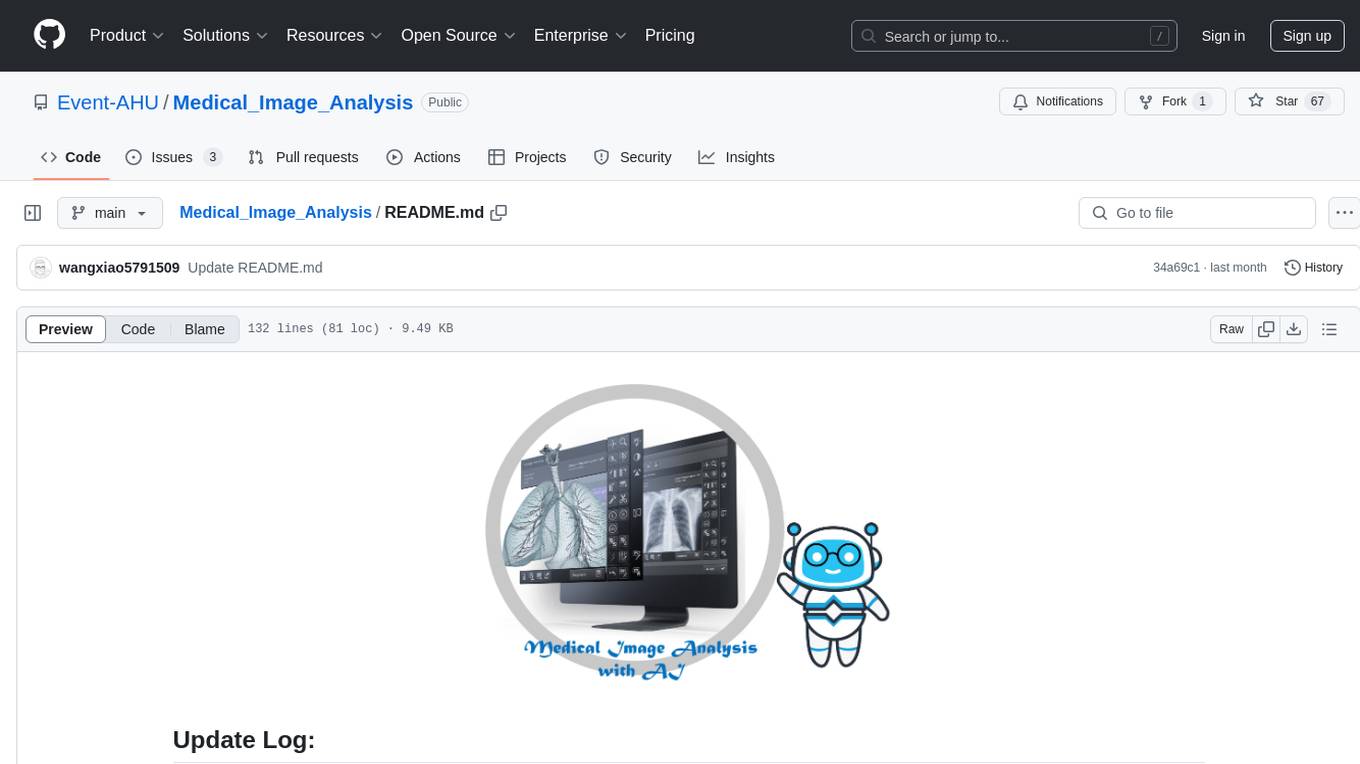
Medical_Image_Analysis
The Medical_Image_Analysis repository focuses on X-ray image-based medical report generation using large language models. It provides pre-trained models and benchmarks for CheXpert Plus dataset, context sample retrieval for X-ray report generation, and pre-training on high-definition X-ray images. The goal is to enhance diagnostic accuracy and reduce patient wait times by improving X-ray report generation through advanced AI techniques.
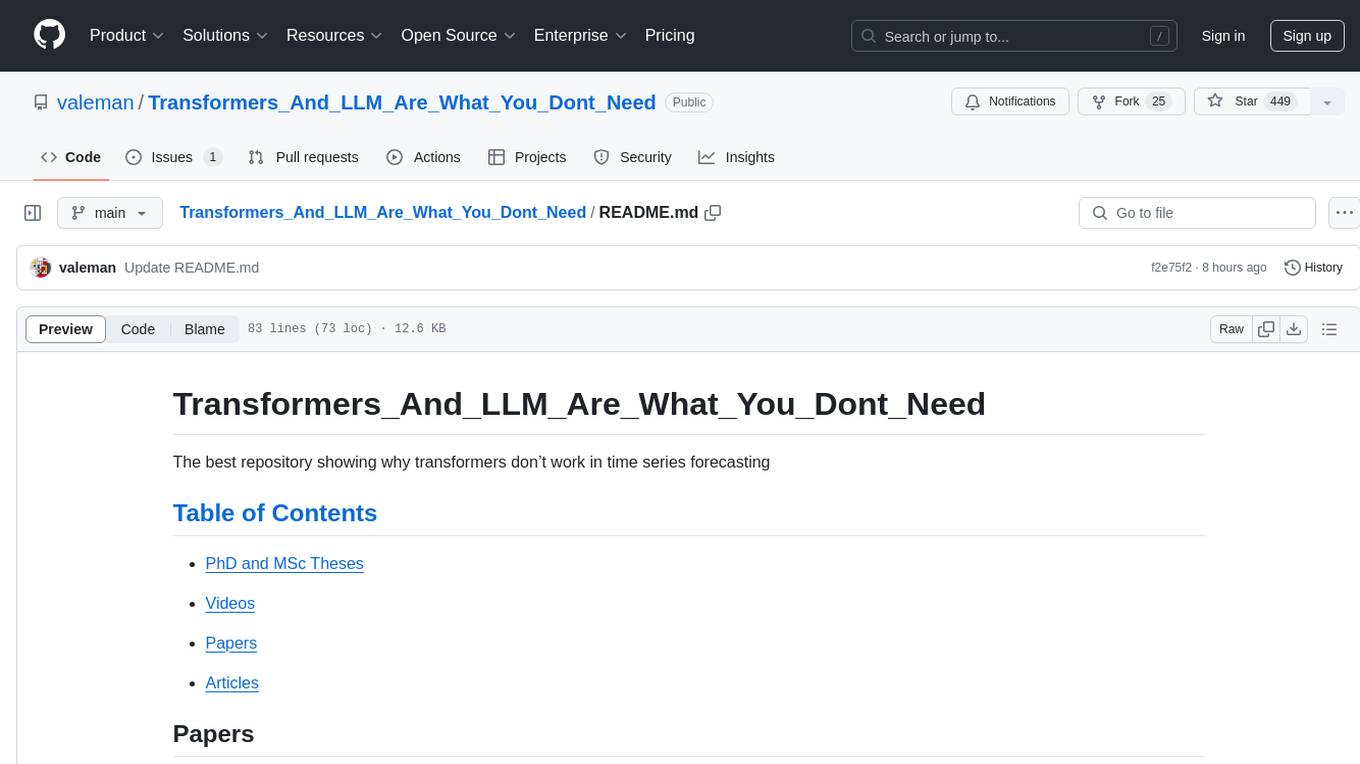
Transformers_And_LLM_Are_What_You_Dont_Need
Transformers_And_LLM_Are_What_You_Dont_Need is a repository that explores the limitations of transformers in time series forecasting. It contains a collection of papers, articles, and theses discussing the effectiveness of transformers and LLMs in this domain. The repository aims to provide insights into why transformers may not be the best choice for time series forecasting tasks.
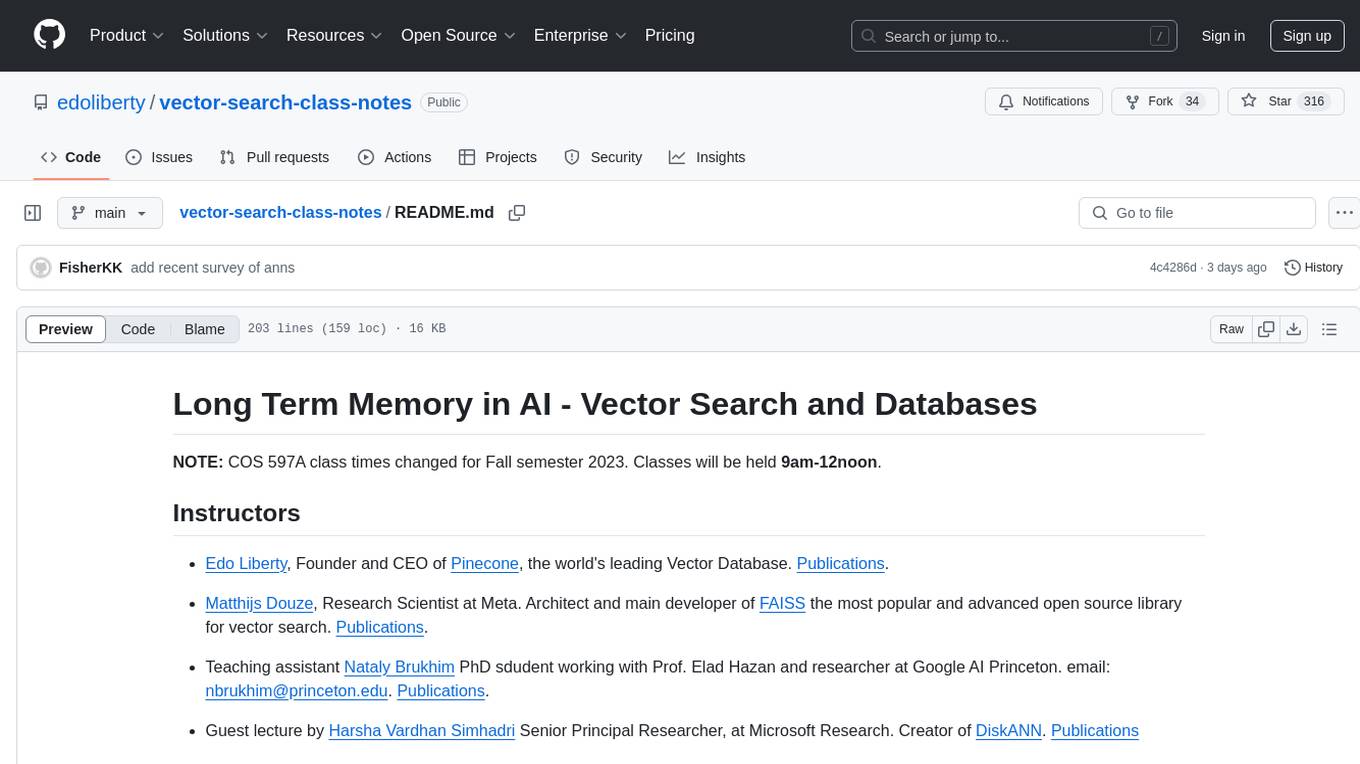
vector-search-class-notes
The 'vector-search-class-notes' repository contains class materials for a course on Long Term Memory in AI, focusing on vector search and databases. The course covers theoretical foundations and practical implementation of vector search applications, algorithms, and systems. It explores the intersection of Artificial Intelligence and Database Management Systems, with topics including text embeddings, image embeddings, low dimensional vector search, dimensionality reduction, approximate nearest neighbor search, clustering, quantization, and graph-based indexes. The repository also includes information on the course syllabus, project details, selected literature, and contributions from industry experts in the field.

AMIE-pytorch
Implementation of the general framework for AMIE, from the paper Towards Conversational Diagnostic AI, out of Google Deepmind. This repository provides a Pytorch implementation of the AMIE framework, aimed at enabling conversational diagnostic AI. It is a work in progress and welcomes collaboration from individuals with a background in deep learning and an interest in medical applications.
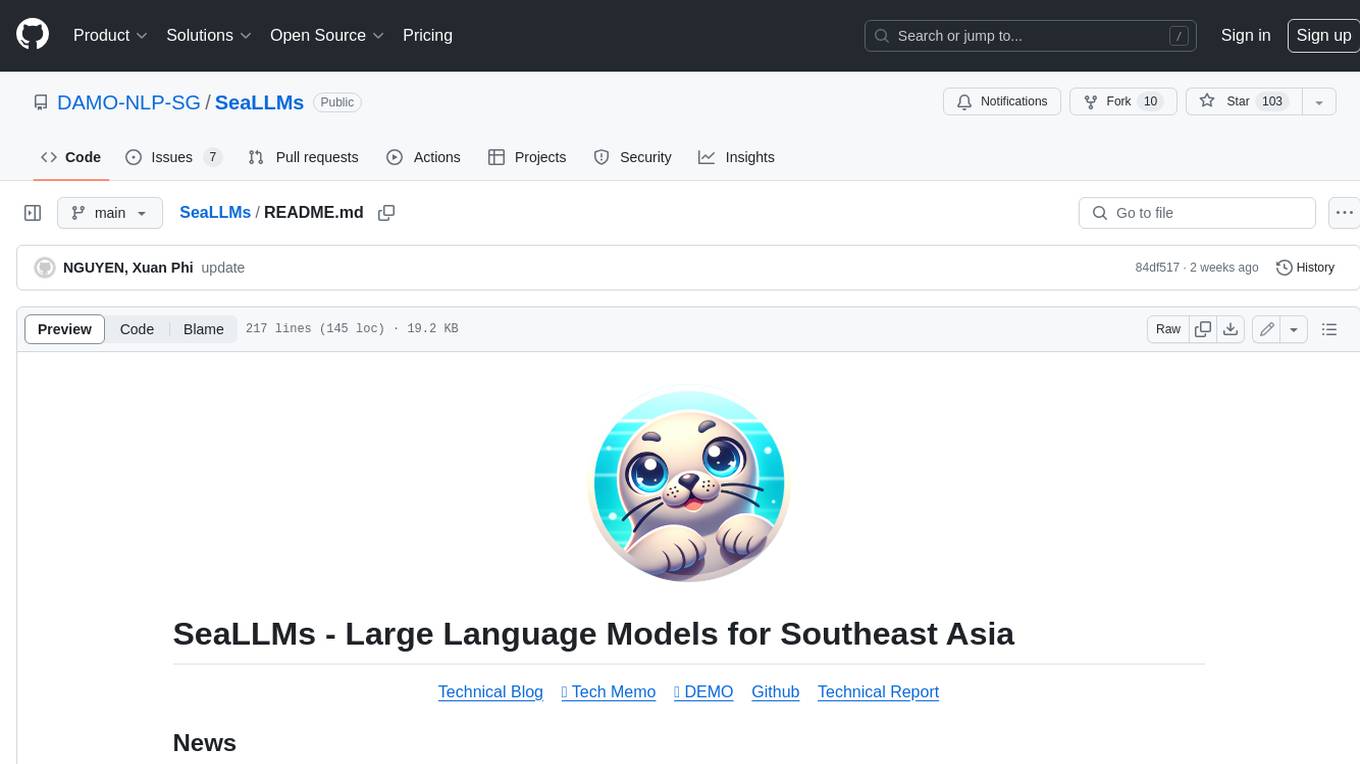
SeaLLMs
SeaLLMs are a family of language models optimized for Southeast Asian (SEA) languages. They were pre-trained from Llama-2, on a tailored publicly-available dataset, which comprises texts in Vietnamese 🇻🇳, Indonesian 🇮🇩, Thai 🇹🇭, Malay 🇲🇾, Khmer🇰🇭, Lao🇱🇦, Tagalog🇵🇭 and Burmese🇲🇲. The SeaLLM-chat underwent supervised finetuning (SFT) and specialized self-preferencing DPO using a mix of public instruction data and a small number of queries used by SEA language native speakers in natural settings, which **adapt to the local cultural norms, customs, styles and laws in these areas**. SeaLLM-13b models exhibit superior performance across a wide spectrum of linguistic tasks and assistant-style instruction-following capabilities relative to comparable open-source models. Moreover, they outperform **ChatGPT-3.5** in non-Latin languages, such as Thai, Khmer, Lao, and Burmese.
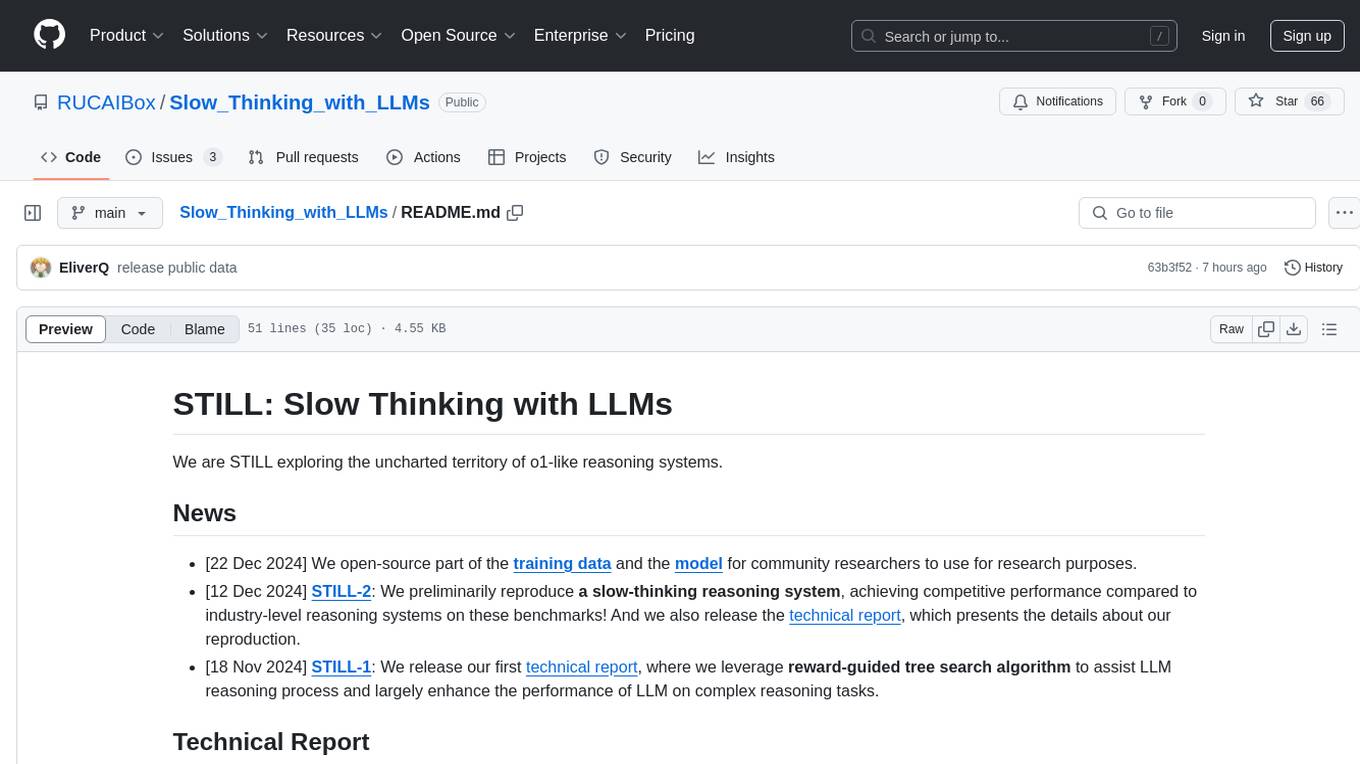
Slow_Thinking_with_LLMs
STILL is an open-source project exploring slow-thinking reasoning systems, focusing on o1-like reasoning systems. The project has released technical reports on enhancing LLM reasoning with reward-guided tree search algorithms and implementing slow-thinking reasoning systems using an imitate, explore, and self-improve framework. The project aims to replicate the capabilities of industry-level reasoning systems by fine-tuning reasoning models with long-form thought data and iteratively refining training datasets.
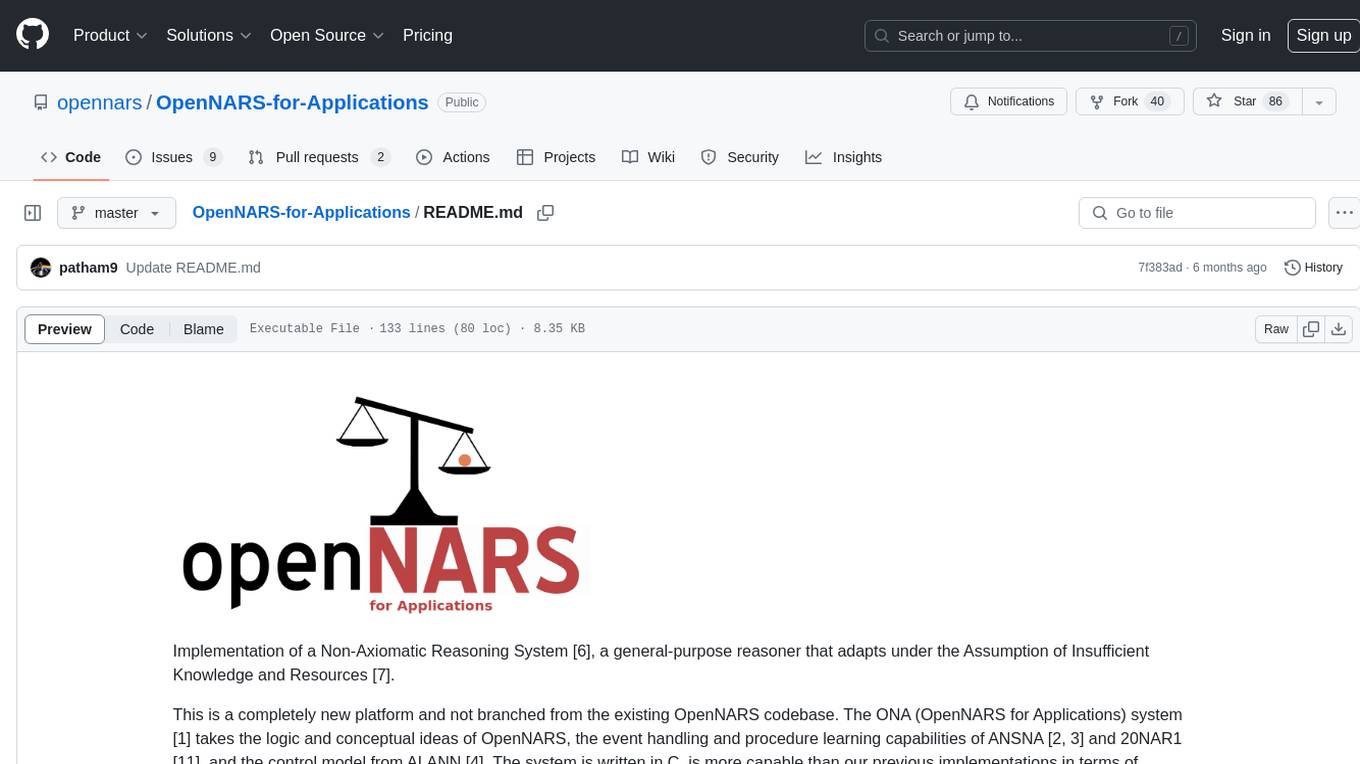
OpenNARS-for-Applications
OpenNARS-for-Applications is an implementation of a Non-Axiomatic Reasoning System, a general-purpose reasoner that adapts under the Assumption of Insufficient Knowledge and Resources. The system combines the logic and conceptual ideas of OpenNARS, event handling and procedure learning capabilities of ANSNA and 20NAR1, and the control model from ALANN. It is written in C, offers improved reasoning performance, and has been compared with Reinforcement Learning and means-end reasoning approaches. The system has been used in real-world applications such as assisting first responders, real-time traffic surveillance, and experiments with autonomous robots. It has been developed with a pragmatic mindset focusing on effective implementation of existing theory.
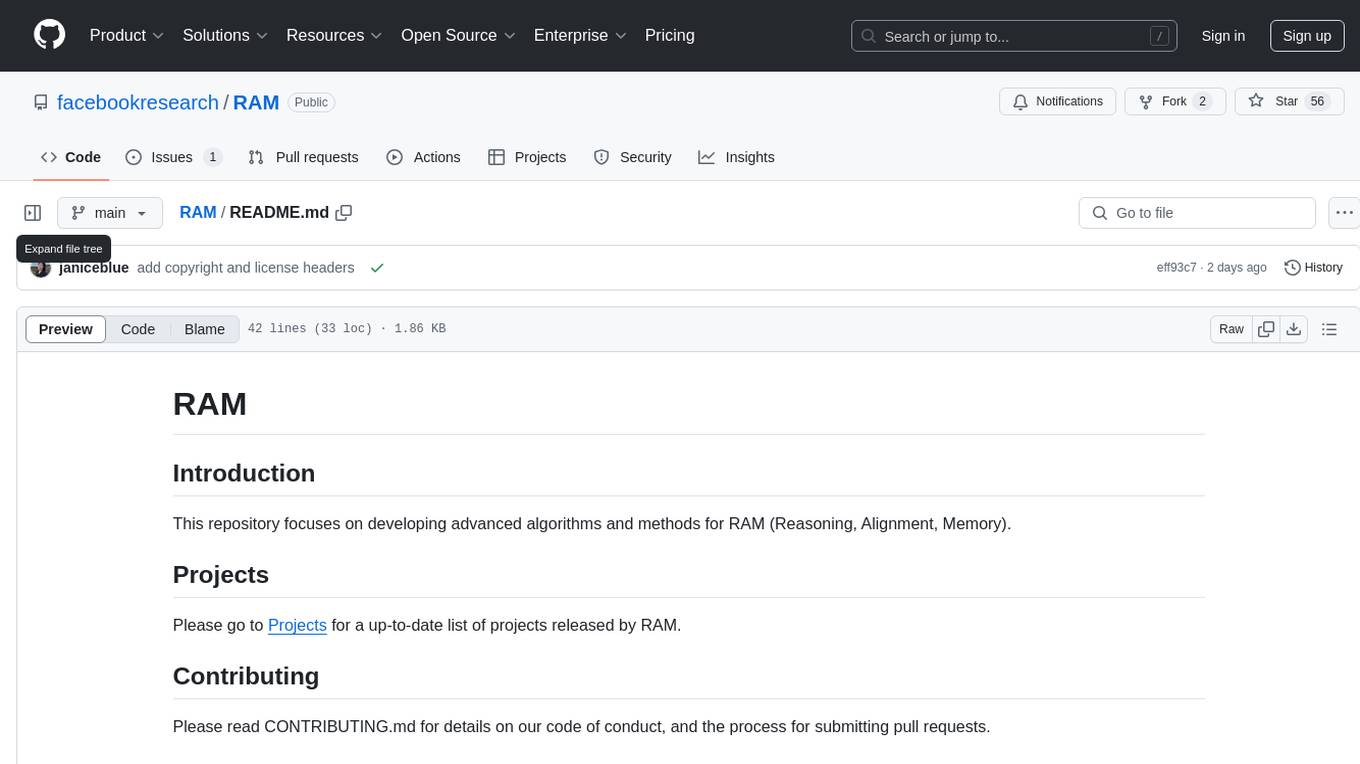
RAM
This repository, RAM, focuses on developing advanced algorithms and methods for Reasoning, Alignment, Memory. It contains projects related to these areas and is maintained by a team of individuals. The repository is licensed under the MIT License.
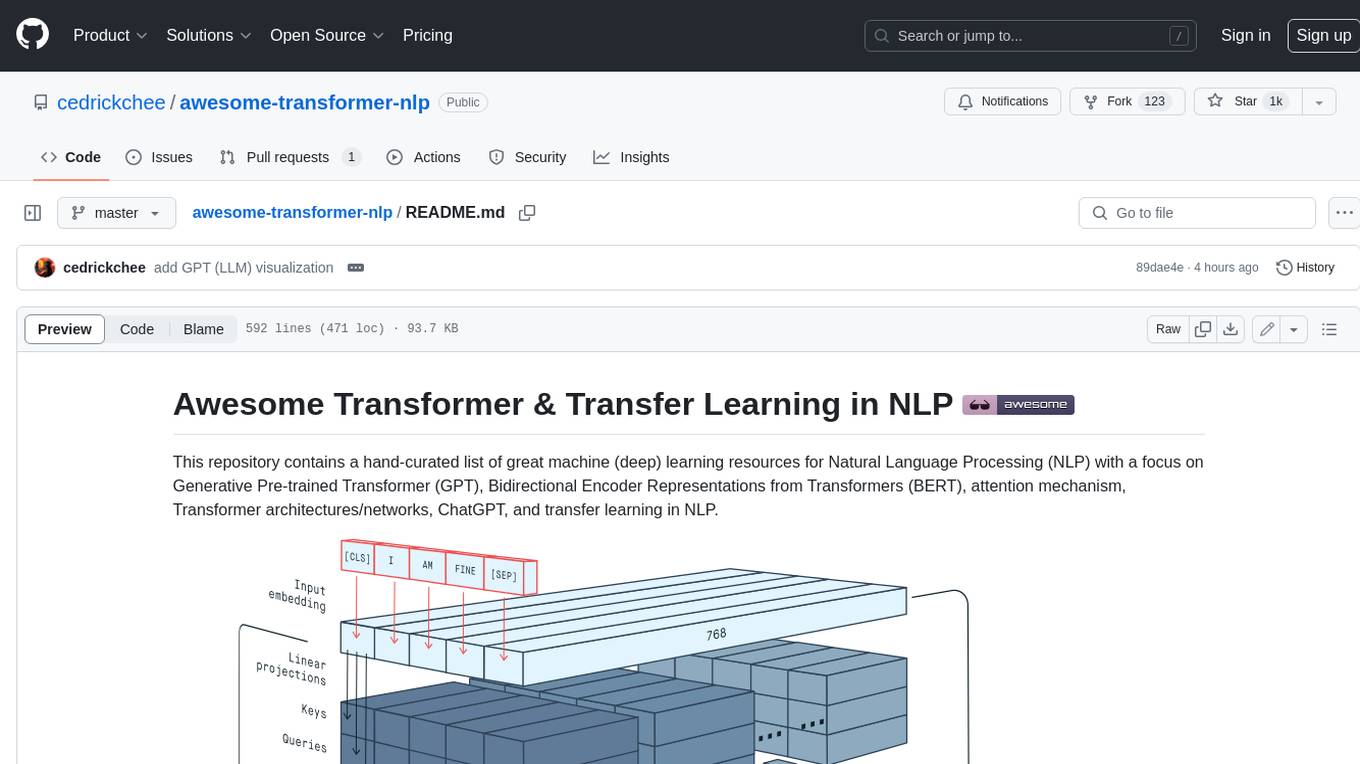
awesome-transformer-nlp
This repository contains a hand-curated list of great machine (deep) learning resources for Natural Language Processing (NLP) with a focus on Generative Pre-trained Transformer (GPT), Bidirectional Encoder Representations from Transformers (BERT), attention mechanism, Transformer architectures/networks, Chatbot, and transfer learning in NLP.
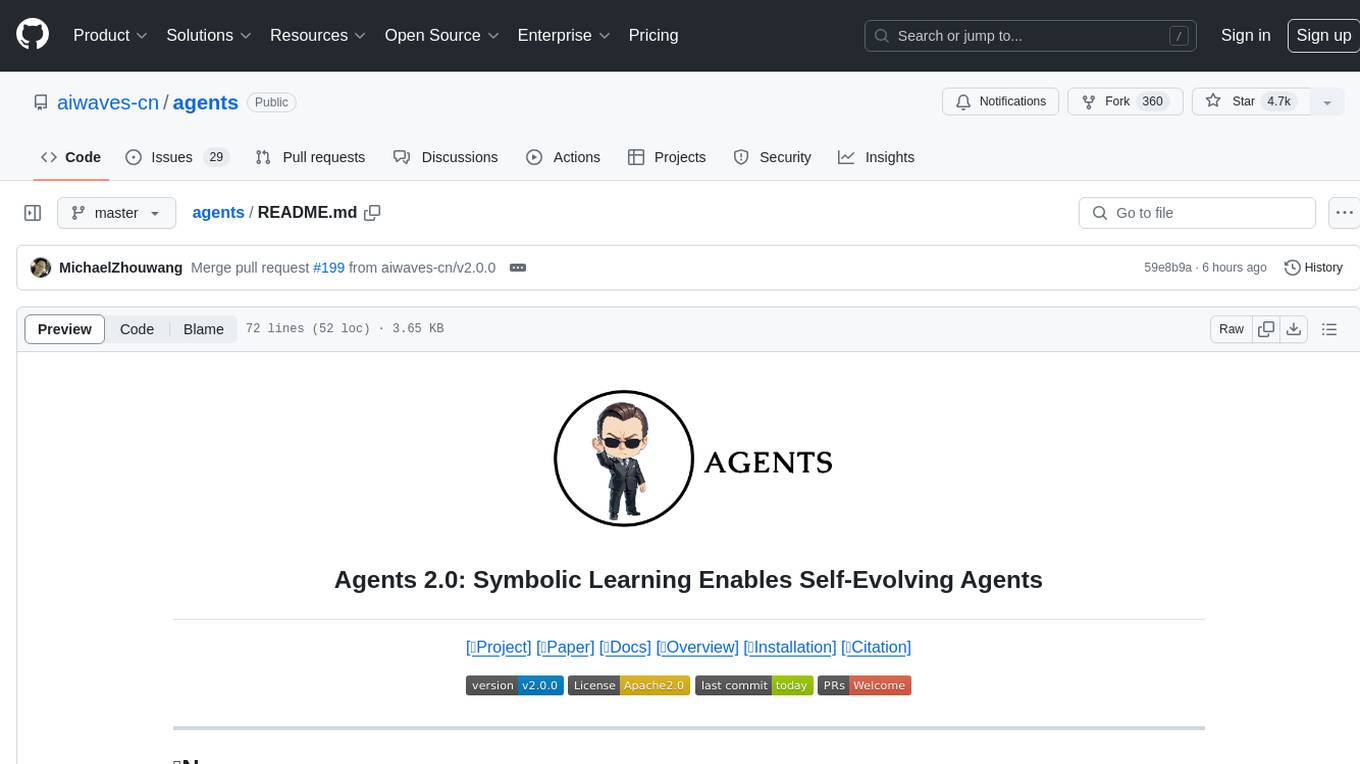
agents
Agents 2.0 is a framework for training language agents using symbolic learning, inspired by connectionist learning for neural nets. It implements main components of connectionist learning like back-propagation and gradient-based weight update in the context of agent training using language-based loss, gradients, and weights. The framework supports optimizing multi-agent systems and allows multiple agents to take actions in one node.
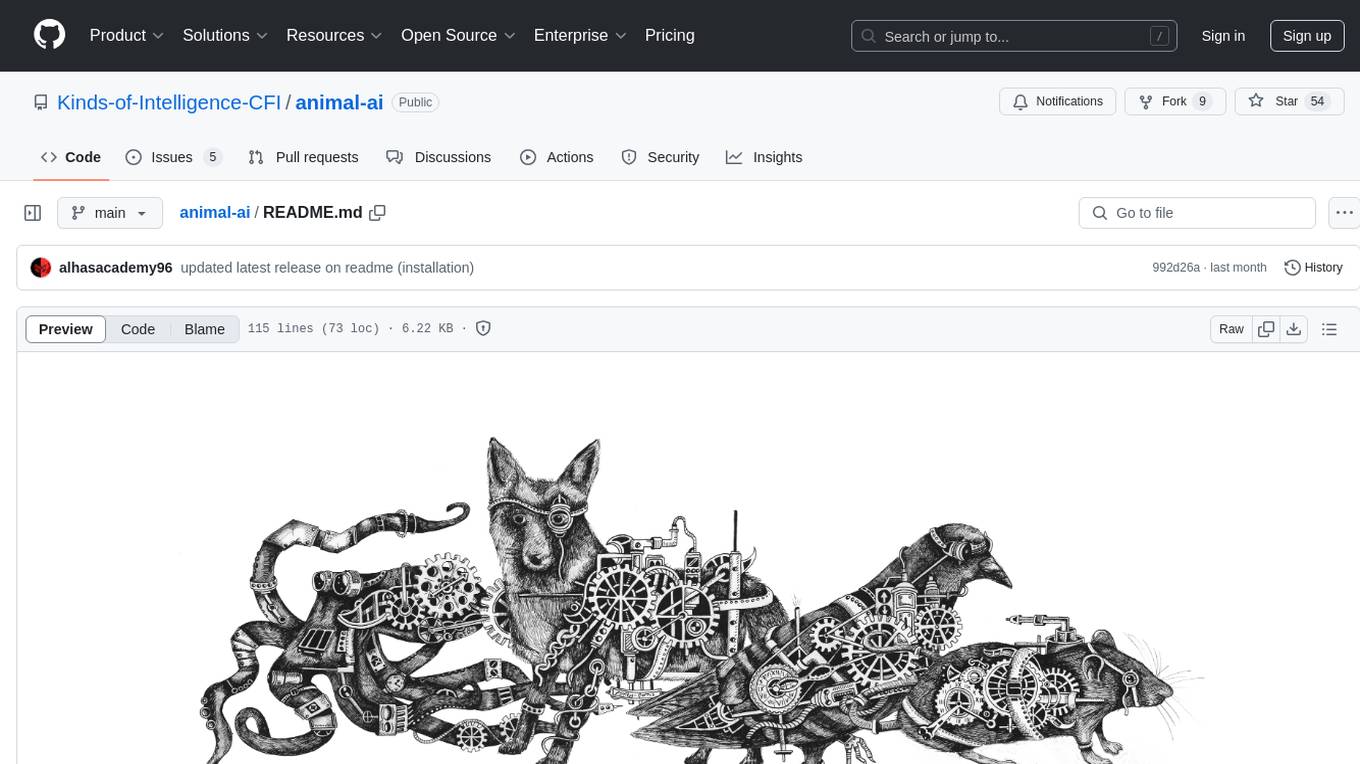
animal-ai
Animal-Artificial Intelligence (Animal-AI) is an interdisciplinary research platform designed to understand human, animal, and artificial cognition. It supports AI research to unlock cognitive capabilities and explore the space of possible minds. The open-source project facilitates testing across animals, humans, and AI, providing a comprehensive AI environment with a library of 900 tasks. It offers compatibility with Windows, Linux, and macOS, supporting Python 3.6.x and above. The environment utilizes Unity3D Game Engine, Unity ML-Agents toolkit, and provides interactive elements for AI training scenarios.
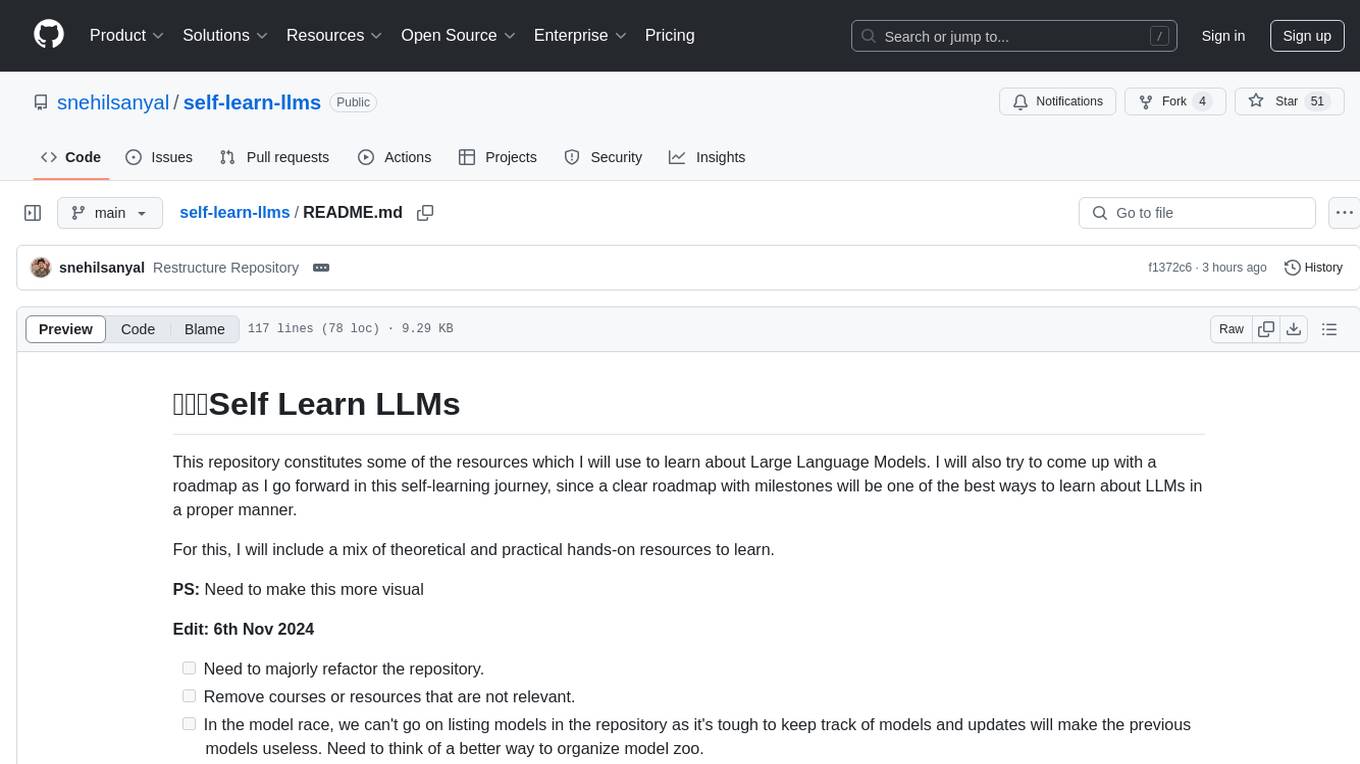
self-learn-llms
Self Learn LLMs is a repository containing resources for self-learning about Large Language Models. It includes theoretical and practical hands-on resources to facilitate learning. The repository aims to provide a clear roadmap with milestones for proper understanding of LLMs. The owner plans to refactor the repository to remove irrelevant content, organize model zoo better, and enhance the learning experience by adding contributors and hosting notes, tutorials, and open discussions.
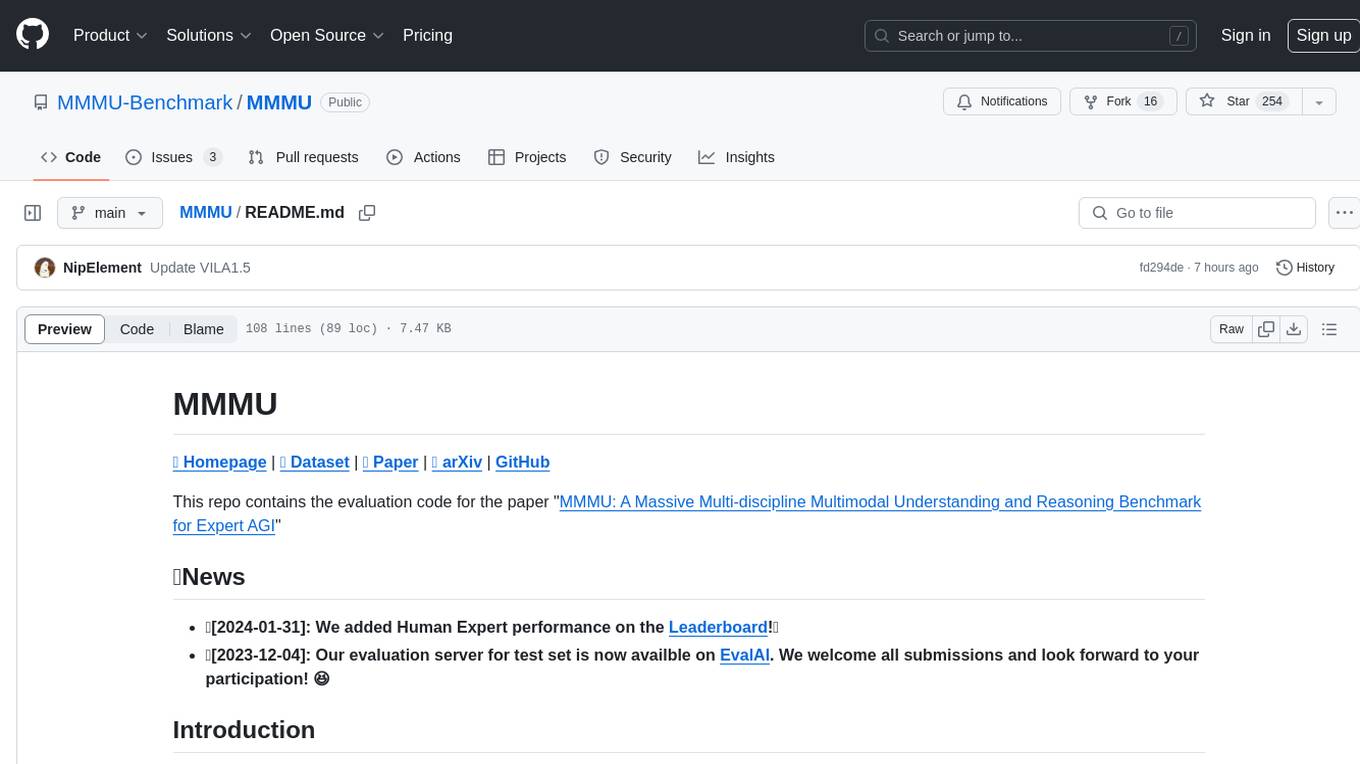
MMMU
MMMU is a benchmark designed to evaluate multimodal models on college-level subject knowledge tasks, covering 30 subjects and 183 subfields with 11.5K questions. It focuses on advanced perception and reasoning with domain-specific knowledge, challenging models to perform tasks akin to those faced by experts. The evaluation of various models highlights substantial challenges, with room for improvement to stimulate the community towards expert artificial general intelligence (AGI).
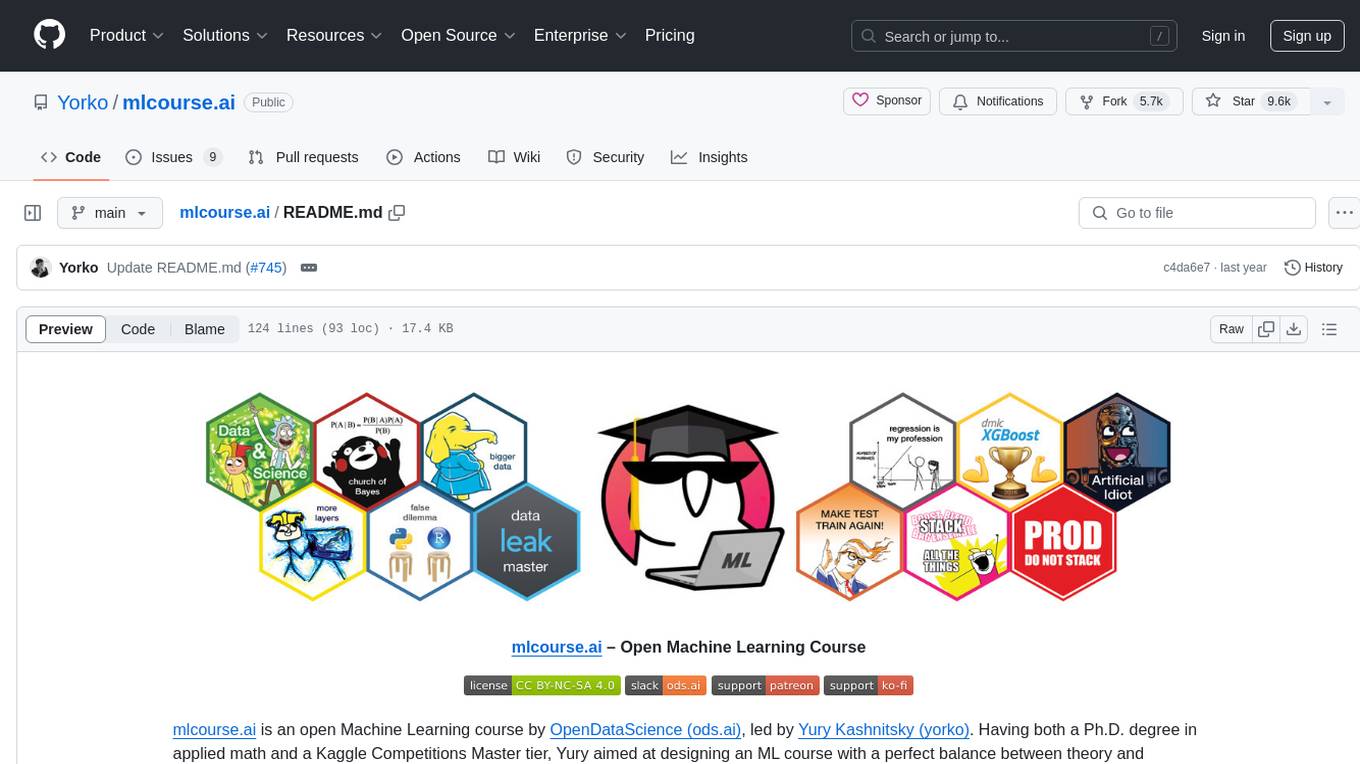
mlcourse.ai
mlcourse.ai is an open Machine Learning course by OpenDataScience (ods.ai), led by Yury Kashnitsky (yorko). The course offers a perfect balance between theory and practice, with math formulae in lectures and practical assignments including Kaggle Inclass competitions. It is currently in a self-paced mode, guiding users through 10 weeks of content covering topics from Pandas to Gradient Boosting. The course provides articles, lectures, and assignments to enhance understanding and application of machine learning concepts.
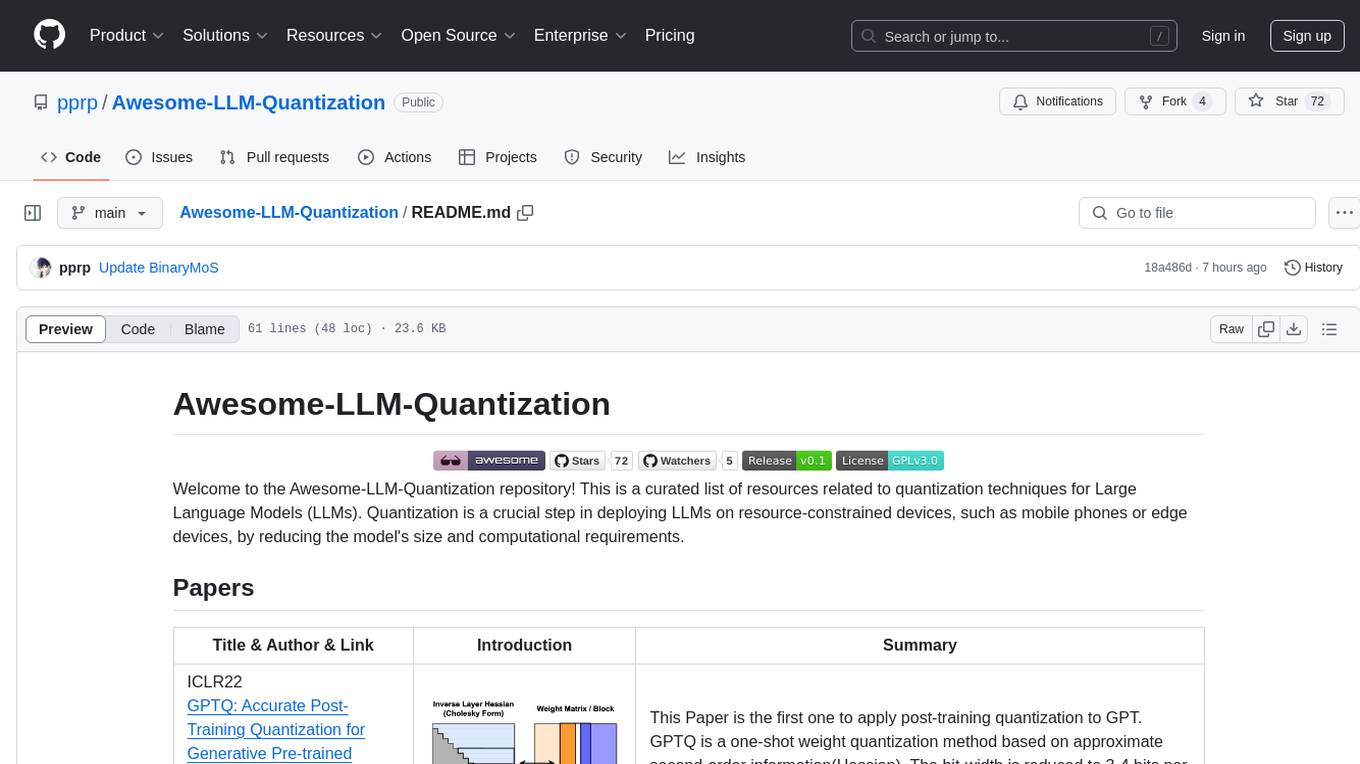
Awesome-LLM-Quantization
Awesome-LLM-Quantization is a curated list of resources related to quantization techniques for Large Language Models (LLMs). Quantization is a crucial step in deploying LLMs on resource-constrained devices, such as mobile phones or edge devices, by reducing the model's size and computational requirements.
For similar tasks

CoachAI-Projects
This repo contains official implementations of **Coach AI Badminton Project** from Advanced Database System Laboratory, National Yang Ming Chiao Tung University supervised by Prof. Wen-Chih Peng. The high-level concepts of each project are as follows: 1. Visualization Platform published at _Physical Education Journal 2020_ aims to construct a platform that can be used to illustrate the data from matches. 2. Shot Influence and Extension Work published at _ICDM-21_ and _ACM TIST 2022_ , respectively introduce a framework with a shot encoder, a pattern extractor, and a rally encoder to capture long short-term dependencies for evaluating players' performance of each shot. 3. Stroke Forecasting published at _AAAI-22_ proposes the first stroke forecasting task to predict the future strokes of both players based on the given strokes by ShuttleNet, a position-aware fusion of rally progress and player styles framework. 4. Strategic Environment published at _AAAI-23 Student Abstract_ designs a safe and reproducible badminton environment for turn-based sports, which simulates rallies with different angles of view and designs the states, actions, and training procedures. 5. Movement Forecasting published at _AAAI-23_ proposes the first movement forecasting task, which contains not only the goal of stroke forecasting but also the movement of players, by DyMF, a novel dynamic graphs and hierarchical fusion model based on the proposed player movements (PM) graphs. 6. CoachAI-Challenge-IJCAI2023 is a badminton challenge (CC4) hosted at _IJCAI-23_. Please find the website for more details. 7. ShuttleSet published at _KDD-23_ is the largest badminton singles dataset with stroke-level records. - An extension dataset ShuttleSet22 published at _IJCAI-24 Demo & IJCAI-23 IT4PSS Workshop_ is also released. 8. CoachAI Badminton Environment published at _AAAI-24 Student Abstract and Demo, DSAI4Sports @ KDD 2023_ is a reinforcement learning (RL) environment tailored for AI-driven sports analytics, offering: i) Realistic opponent simulation for RL training; ii) Visualizations for evaluation; and iii) Performance benchmarks for assessing agent capabilities.
For similar jobs

weave
Weave is a toolkit for developing Generative AI applications, built by Weights & Biases. With Weave, you can log and debug language model inputs, outputs, and traces; build rigorous, apples-to-apples evaluations for language model use cases; and organize all the information generated across the LLM workflow, from experimentation to evaluations to production. Weave aims to bring rigor, best-practices, and composability to the inherently experimental process of developing Generative AI software, without introducing cognitive overhead.

LLMStack
LLMStack is a no-code platform for building generative AI agents, workflows, and chatbots. It allows users to connect their own data, internal tools, and GPT-powered models without any coding experience. LLMStack can be deployed to the cloud or on-premise and can be accessed via HTTP API or triggered from Slack or Discord.

VisionCraft
The VisionCraft API is a free API for using over 100 different AI models. From images to sound.

kaito
Kaito is an operator that automates the AI/ML inference model deployment in a Kubernetes cluster. It manages large model files using container images, avoids tuning deployment parameters to fit GPU hardware by providing preset configurations, auto-provisions GPU nodes based on model requirements, and hosts large model images in the public Microsoft Container Registry (MCR) if the license allows. Using Kaito, the workflow of onboarding large AI inference models in Kubernetes is largely simplified.

PyRIT
PyRIT is an open access automation framework designed to empower security professionals and ML engineers to red team foundation models and their applications. It automates AI Red Teaming tasks to allow operators to focus on more complicated and time-consuming tasks and can also identify security harms such as misuse (e.g., malware generation, jailbreaking), and privacy harms (e.g., identity theft). The goal is to allow researchers to have a baseline of how well their model and entire inference pipeline is doing against different harm categories and to be able to compare that baseline to future iterations of their model. This allows them to have empirical data on how well their model is doing today, and detect any degradation of performance based on future improvements.

tabby
Tabby is a self-hosted AI coding assistant, offering an open-source and on-premises alternative to GitHub Copilot. It boasts several key features: * Self-contained, with no need for a DBMS or cloud service. * OpenAPI interface, easy to integrate with existing infrastructure (e.g Cloud IDE). * Supports consumer-grade GPUs.

spear
SPEAR (Simulator for Photorealistic Embodied AI Research) is a powerful tool for training embodied agents. It features 300 unique virtual indoor environments with 2,566 unique rooms and 17,234 unique objects that can be manipulated individually. Each environment is designed by a professional artist and features detailed geometry, photorealistic materials, and a unique floor plan and object layout. SPEAR is implemented as Unreal Engine assets and provides an OpenAI Gym interface for interacting with the environments via Python.

Magick
Magick is a groundbreaking visual AIDE (Artificial Intelligence Development Environment) for no-code data pipelines and multimodal agents. Magick can connect to other services and comes with nodes and templates well-suited for intelligent agents, chatbots, complex reasoning systems and realistic characters.